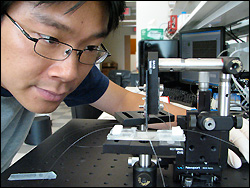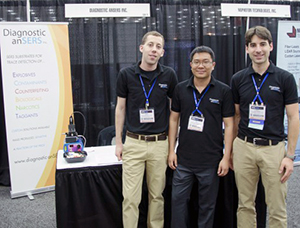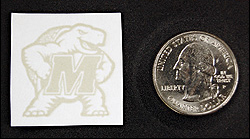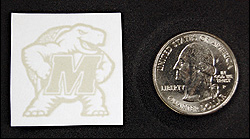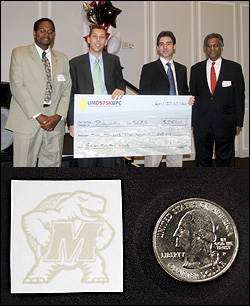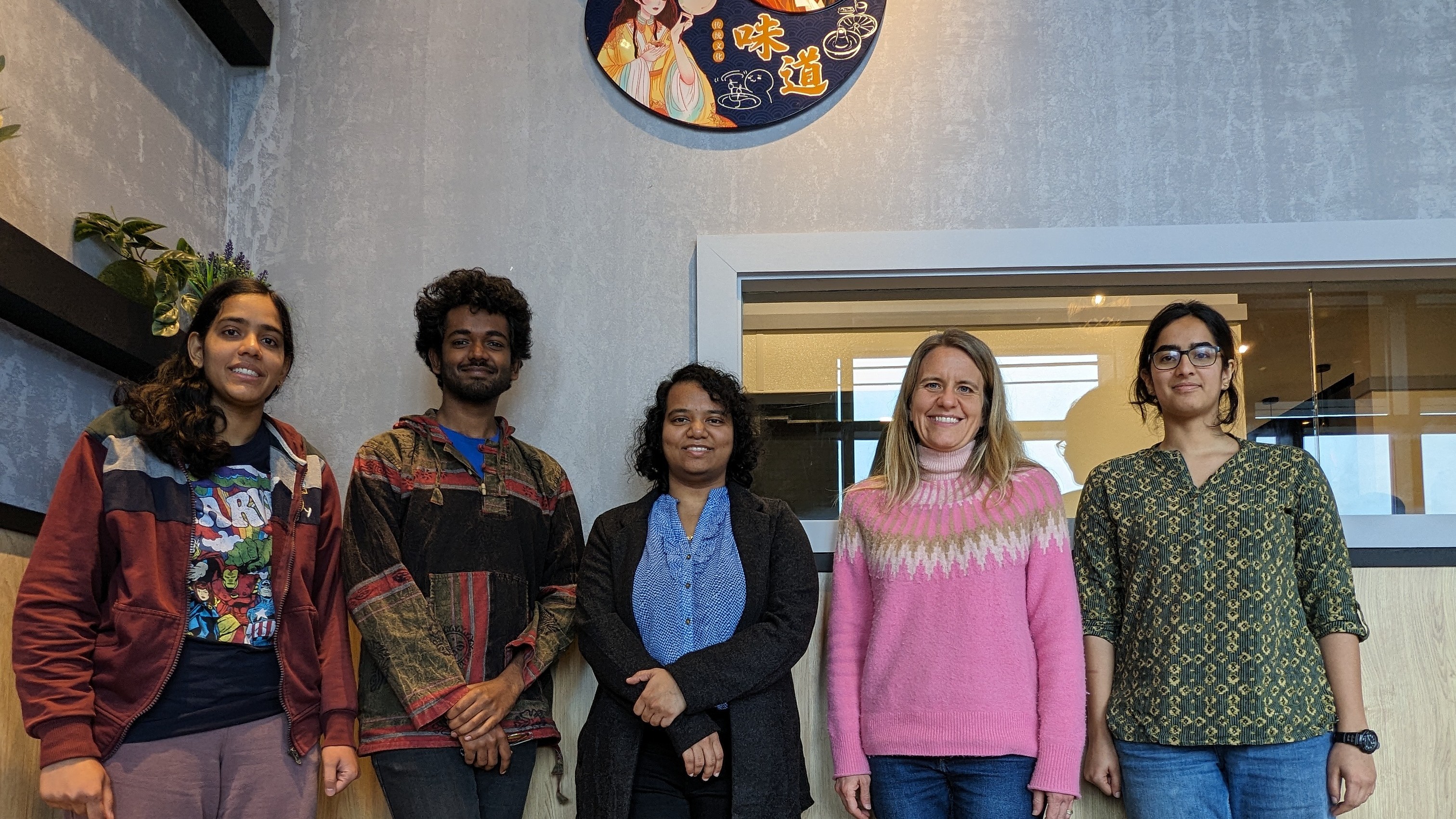News Story
Yu Takes Second at GRID Session for Advances in Sensor Technology
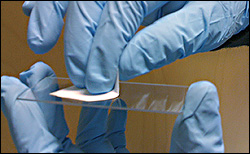
A swab-style, paper-based surface-enhanced Raman spectroscopy (SERS) substrate is wiped across a slide to collect a sample for analysis. The swab was printed using nanoparticle-laced ink and an ordinary inkjet printer. BioE graduate student Wei W. Yu hopes new options like this will make SERS, a technique used for detecting and identifying target substances present in mere molecules, a more portable and affordable sensor technology.
Yu's presentation, "Inkjet Printed Swab-Dipstick with SERS Detection" described what he calls "a new twist" on the technology he introduced in his first place presentation last year. Yu, along with other members of White's research group, has developed a technique that employs an ordinary inkjet printer to make an inexpensive, nanopaticle-laced substrate (a surface onto which a sample is deposited for analysis) for use in surface-enhanced Raman spectroscopy (SERS). SERS can be used to detect a target substance—such as a toxin, virus, or explosive—in quantities that can be counted in molecules. Yu's paper-based substrates, unlike traditional ones, can be easily manufactured using off-the-shelf equipment, making SERS a more portable and accessible technology.
Now, Yu explains, he and his colleagues have made working with SERS even easier. "Instead of using a paper substrate as a spot onto which we pipette the sample," he says, "we have devised a way to use it as a swab or a dipstick. This further simplifies the sample collection procedure and leads to improvements in the detection signal." He adds that the new swabs were found to be effective for the surface detection of cocaine, heroin and pesticides, and that the dipsticks, which are used with liquid samples, could be biofunctionalized for use in point-of-care assays.
GRID, which is run by the Graduate Student Government, is a campus-wide event in which graduate students from all parts of the university present and discuss their work with faculty and fellow students, enabling them to receive feedback from a broader audience and perfect their conference presentation skills. Participants make oral and poster presentations that are judged in a variety of categories by faculty, postdoctoral fellows, administrators, and other specialists from around campus.
Published April 24, 2012

